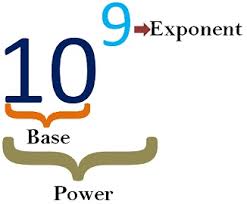 Like the thousands of other humanities people getting ready to take the GRE, you may not have thought about exponents since high school. You probably spent your undergraduate years thinking a lot more about existentialism than exponents, and now need to feel confident enough about that tiny superscript number to work with it over and over again on the GRE.
Like the thousands of other humanities people getting ready to take the GRE, you may not have thought about exponents since high school. You probably spent your undergraduate years thinking a lot more about existentialism than exponents, and now need to feel confident enough about that tiny superscript number to work with it over and over again on the GRE.
GRAD School / MBA News and GMAT / GRE Strategy
Stay current with the latest grad school or MBA admissions news as well as proven GMAT and GRE strategies.
Posts about GRE (3):
GRE Guide: Single Question Passages
 Perhaps the most overwhelming thing about the GRE is the test itself, as a whole. This article from HappySchools outlines the content and general format of the exam. The terrain covered by even the most conservative subsections can feel constantly in flux – and when most questions are asked only a single time on the test, prepping on a smaller scale often feels futile. But further compartmentalization actually breaks the test into fully digestible pieces, and when we look at the species of questions that exist in a micro-sense, we can see better when certain skills are being evaluated more than others. Noticing these differences is key to succeeding on the test, as going without often leads us to throw all of our skills at each question, a process that is draining and overwhelming. By noting the differences and curating our approach in a more fine-tuned way, we can save energy for later in the test, and have a better sense of question-consciousness, where we as test takers are responding to the questions as they are being asked, and not as we fear them to be.
Perhaps the most overwhelming thing about the GRE is the test itself, as a whole. This article from HappySchools outlines the content and general format of the exam. The terrain covered by even the most conservative subsections can feel constantly in flux – and when most questions are asked only a single time on the test, prepping on a smaller scale often feels futile. But further compartmentalization actually breaks the test into fully digestible pieces, and when we look at the species of questions that exist in a micro-sense, we can see better when certain skills are being evaluated more than others. Noticing these differences is key to succeeding on the test, as going without often leads us to throw all of our skills at each question, a process that is draining and overwhelming. By noting the differences and curating our approach in a more fine-tuned way, we can save energy for later in the test, and have a better sense of question-consciousness, where we as test takers are responding to the questions as they are being asked, and not as we fear them to be.
GRE: Practice (Tests) Make Perfect
 As you're planning to take the GRE, you'll want to set up a structured study plan for yourself. There's no single, correct way to do this, and each student approaches this test slightly differently. Some students may opt for a rigorous prep course, while others might work with a tutor. Still other students strike off on their own, get a few books, sign up for a few online resources and study the material themselves. No matter which approach you decide to take, though, you'll want to find a way to structure your studying and measure your progress—and one of simplest and most effective ways of doing that is to simply take tests as you go along.
As you're planning to take the GRE, you'll want to set up a structured study plan for yourself. There's no single, correct way to do this, and each student approaches this test slightly differently. Some students may opt for a rigorous prep course, while others might work with a tutor. Still other students strike off on their own, get a few books, sign up for a few online resources and study the material themselves. No matter which approach you decide to take, though, you'll want to find a way to structure your studying and measure your progress—and one of simplest and most effective ways of doing that is to simply take tests as you go along.
The Formula for a Great GRE Essay
 When's the last time you read the editorial section of a newspaper? In case you haven't picked one up in awhile, that's the section in which the editors, speaking for the newspaper as a whole, express the paper's stance on pertinent issues of the day. Strong editorials don't have to be particularly long, but they clearly articulate the point of view of the editorial board, offer strong support for why the editors feel the way they do, address and refute counterarguments, and wrap up with a strong reiteration of the main argument, sometimes with a call to action. The best editorials capture the passion and conviction of the writers—in a manner such that those who already agree will be galvanized, and those who disagree may in some cases be persuaded to rethink their point of view. These skills, it just so happens, encapsulate the kind of writing that can knock a GRE essay out of the park.
When's the last time you read the editorial section of a newspaper? In case you haven't picked one up in awhile, that's the section in which the editors, speaking for the newspaper as a whole, express the paper's stance on pertinent issues of the day. Strong editorials don't have to be particularly long, but they clearly articulate the point of view of the editorial board, offer strong support for why the editors feel the way they do, address and refute counterarguments, and wrap up with a strong reiteration of the main argument, sometimes with a call to action. The best editorials capture the passion and conviction of the writers—in a manner such that those who already agree will be galvanized, and those who disagree may in some cases be persuaded to rethink their point of view. These skills, it just so happens, encapsulate the kind of writing that can knock a GRE essay out of the park.
Of Course It's Flawed: The Argument Essay

Decisions: GRE or MAT?
What if I told you that there was an alternative to the GRE that included no essays, almost no math, was administered in less than one-third of the time and offered for less than half of the cost? If you’re a liberal arts grad like me, you’d probably be rather excited about this incredible entrance requirement alternative! Well, this exam already exists. It’s called the Miller Analogies Test (MAT) and it is accepted by hundreds of graduate schools across the country, primarily for acceptance to programs with focuses in the humanities and social sciences.
